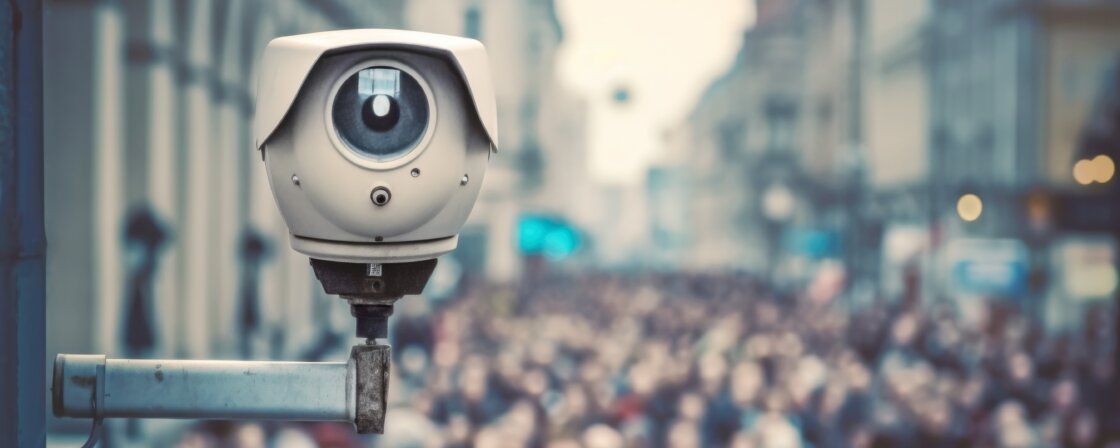Why is the modification needed at all?
Many of the aspects and changes that the development of AI brings are beneficial – they make work and resource use faster and more efficient, relieve us of repetitive tasks or automate many processes. All in all, one could say that perhaps they mark the next evolutionary stage of humanity. And as they say, “you can’t stop progress”. But it is also necessary to look at the other side of the coin.
Artificial intelligence can also bring with it a number of risks. We’re not talking about catastrophic science fiction visions. There are already problems with fraudsters using AI to extract money or personal information from people. It’s also becoming increasingly difficult to determine the authenticity of photos and videos, and AI is taking this problem to the next level. However, this is nothing compared to what AI may very well be able to do in the future – we’re talking about manipulating people or losing privacy altogether. Indeed, if these technologies are not regulated, it could mean a similar development to what we are seeing in China.
This is where the so-called Social Credit System operates, which scores Chinese citizens on the basis of their economic and social behaviour. This means that people are scored on a number of factors – they get negative points, for example, for smoking in forbidden places or spending too much time playing computer games. They may then be refused a loan, lose the use of certain services, and so on.
Are you solving a similar problem?
Do you have a question?
Do you have a question about the legal regulation of AI and possible future developments? Email us and you will have an answer from one of our attorneys within 48 hours.
I have a question
- When you order, you know what you will get and how much it will cost.
- We handle everything online or in person at one of our 6 offices.
- We handle 8 out of 10 requests within 2 working days.
- We have specialists for every field of law.
What the AI Act regulates
The Act itself has not yet been finalised, but it is already known what its content will be. The EU is not interested in stifling innovation, but still wants to regulate AI to ensure its transparency, safety, traceability, non-discriminatory nature and environmental friendliness. AI is categorised based on the level of potential risk:
Unacceptable risk
This includes AI systems that are considered a threat to humans and the EU plans to ban them. These include the manipulation of humans or certain vulnerable groups of people (e.g. children or the elderly), the allocation of social credit (which we have already mentioned in relation to China) or biometric identification systems that operate remotely and in real time.
However, for biometric identification systems, the EU is considering allowing certain exemptions, for example for police investigations. Such remote and real-time tracking of people could greatly facilitate, for example, the search for criminals or kidnap victims. ‘Big Brother’ will certainly be a big topic of the future.
Tip for article
Tip: The fact that cameras are pointed at us on the streets, in the doorways of large companies or in the entrances of apartment buildings is slowly becoming a common reality that we count on. But more and more people are installing cameras in their homes. What is driving them to do this and what does the law say? And what about the use of recordings in private in general? Find out in our next article.
High risk
This category includes AI systems that have a negative impact on security and basic human rights. This category is then divided into two further sub-categories:
- AI systems used in products covered by EU product safety legislation: i.e. toys, cars, medical devices, lifts, aerospace.
- AI systems falling into eight areas that will have to be registered in the EU database.
For both of these sub-categories, the EU envisages the need for an assessment prior to their entry into the European market, followed by regular checks.
Generative AI
This is a type of artificial intelligence that creates something. This includes, for example, the well-known ChatGPT. This type of AI will have to meet transparency requirements. It will therefore have to be clearly stated that the content has been created by the AI. Other rules also relate to copyrighted data and preventing the creation of illegal content.
Moderate risk
This includes other AI systems with moderate risk. There will be requirements on these, particularly in terms of transparency – so people should be informed that what they see or hear has been created by AI. This will therefore apply in particular to so-called deepfakes videos, images or audio recordings.
What does this mean for us?
The AI Act is expected to be finalized sometime in the middle of this year, with states having a set period of time to implement the rules, as with other EU rules. But there is no doubt that the regulation will have a big impact, especially on companies that will have to adapt to it. In addition to the rules themselves, there are also heavy fines at stake for non-compliance. We are talking here about fines of up to EUR 35 million, or 7% of worldwide sales. On the other hand, it should be mentioned that many Czech companies have not yet adopted the use of artificial intelligence, so the application of the new rules will probably be quite easy for them.
Tip for article
Tip: The Affordable Advocate has been actively using AI for some time and you can use it too. We call it AIDA and it’s at the bottom of every article. Just ask it a question and it will come up with an answer, including a list of relevant services and articles on the topic.
It is possible that artificial intelligence will also influence the practice in Czech courts. If a photograph or video is currently presented in court as evidence, the judge usually does not question it and automatically takes it as real footage. Although the opposing party may argue that it is a fake, this does not often happen in practice. For example, in our work at the Accessible Lawyer we have only encountered this in a handful of cases. However, as AI develops and spreads to a wider audience every day, it will certainly appear in evidence in court. And this problem will need to be addressed. No video will be credible.
How AI and its regulation will affect the Czech market and society as a whole is yet to be seen. But it is to be expected that AI will continue to evolve and it is not impossible that with it will come increasingly stringent regulation. It is therefore a question of how the Czech and EU legal systems will deal with this.




